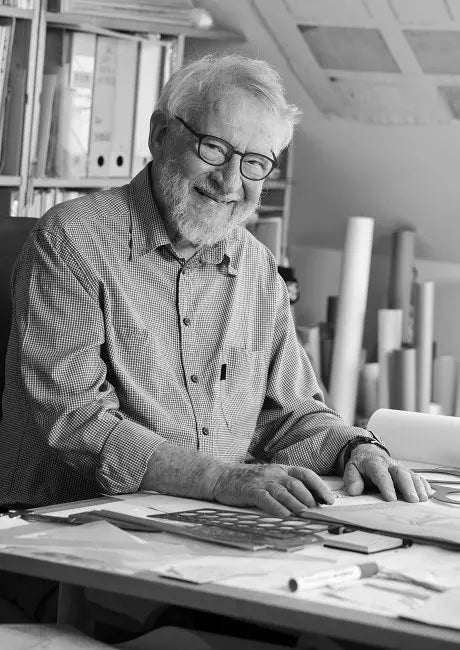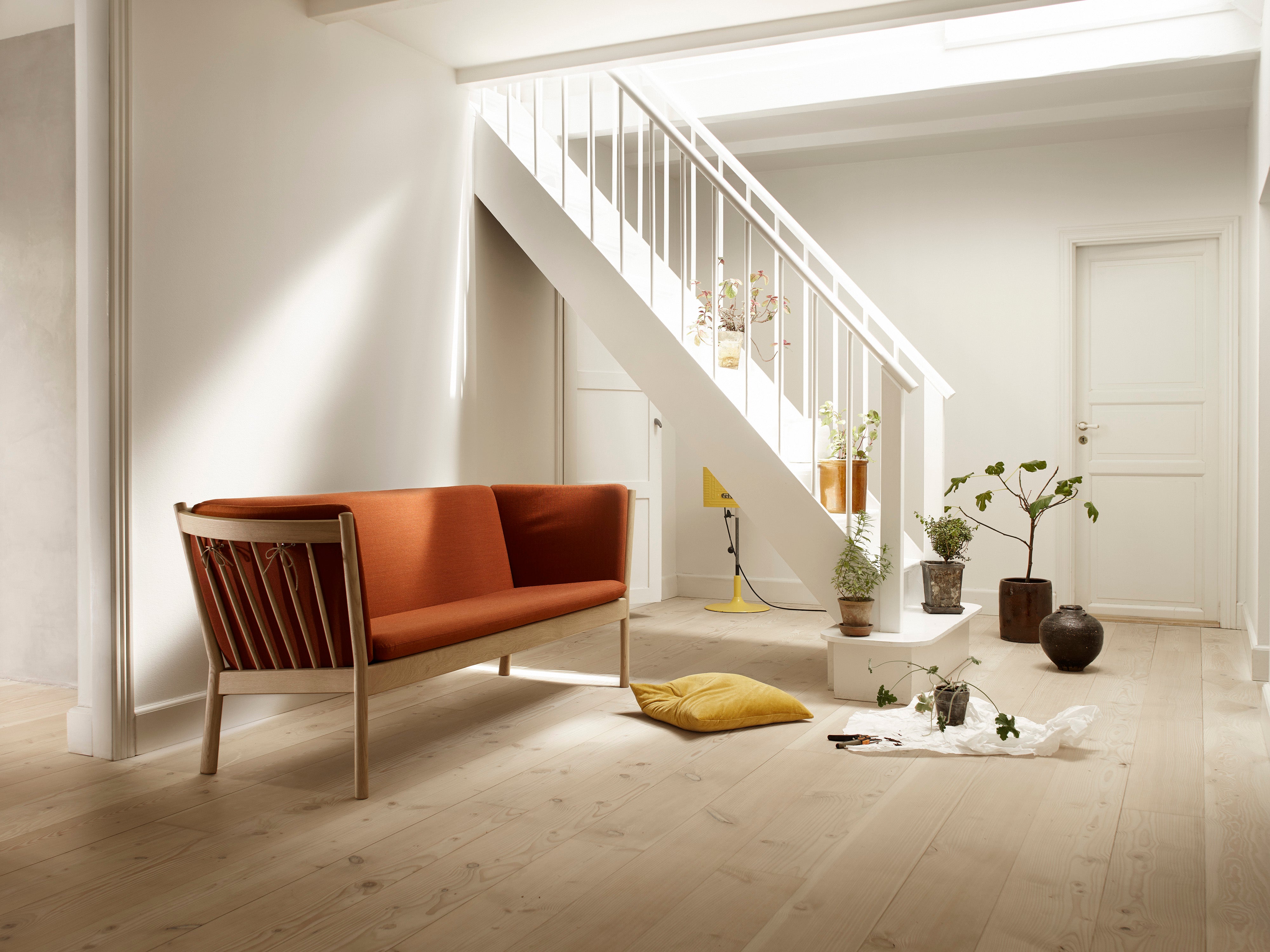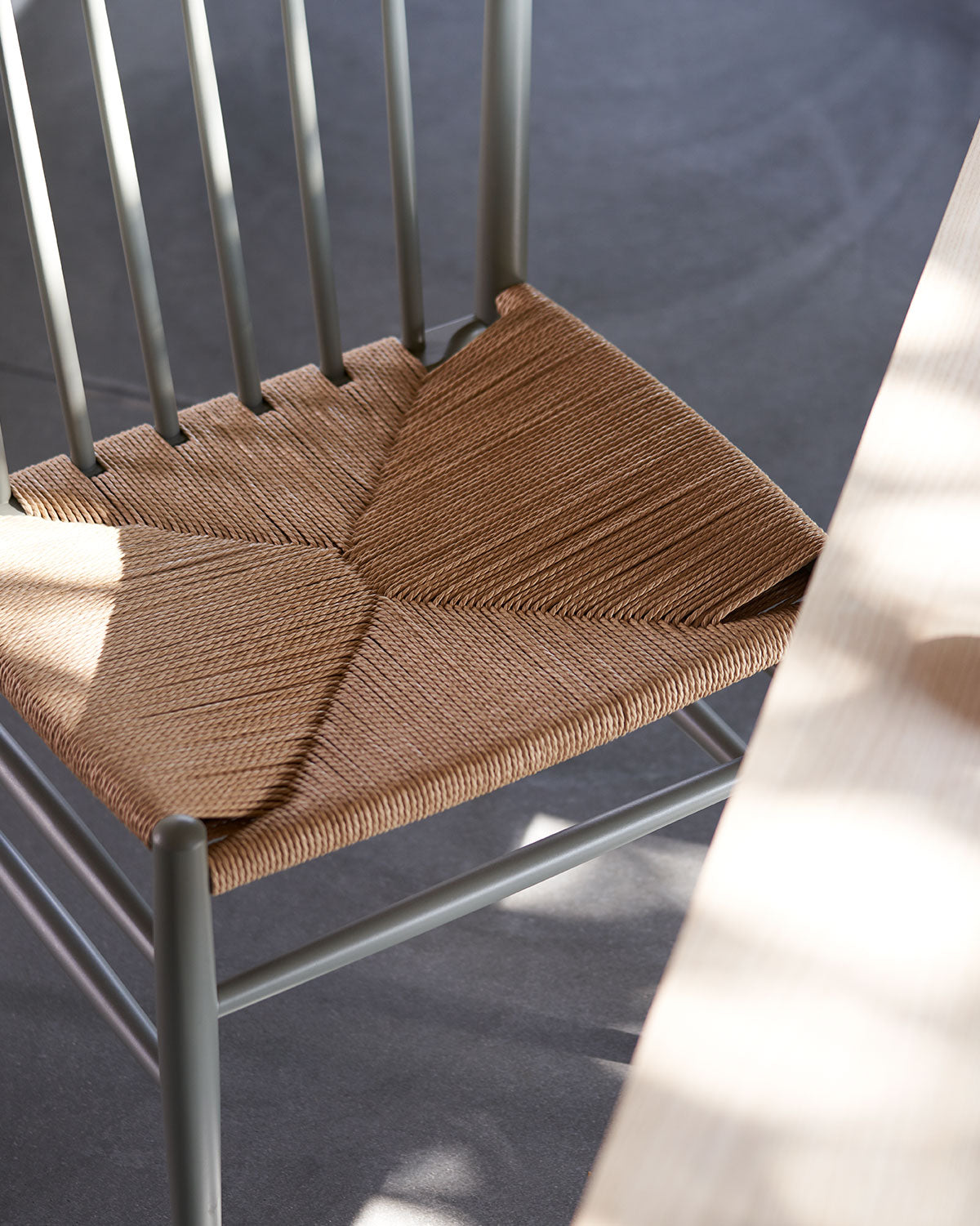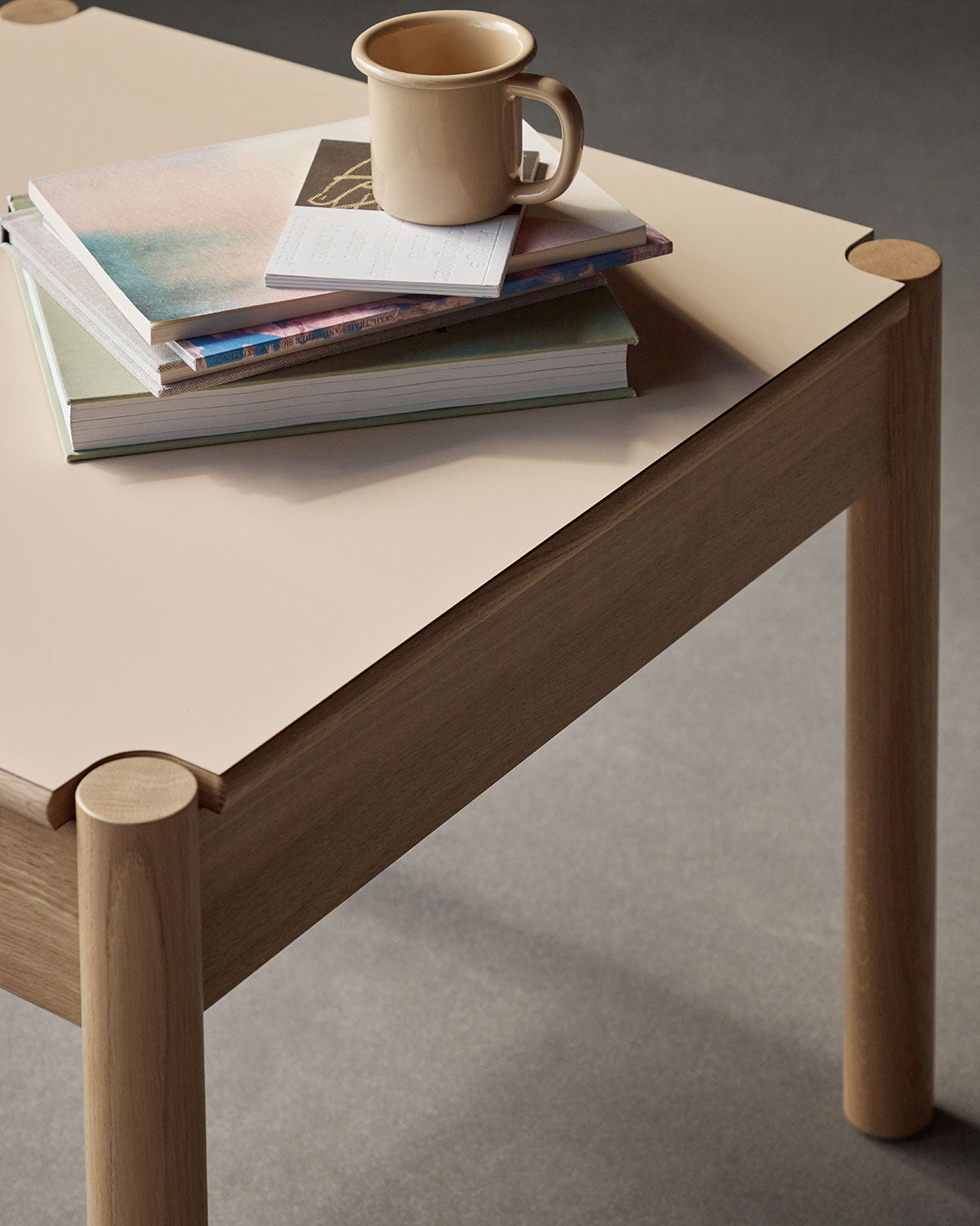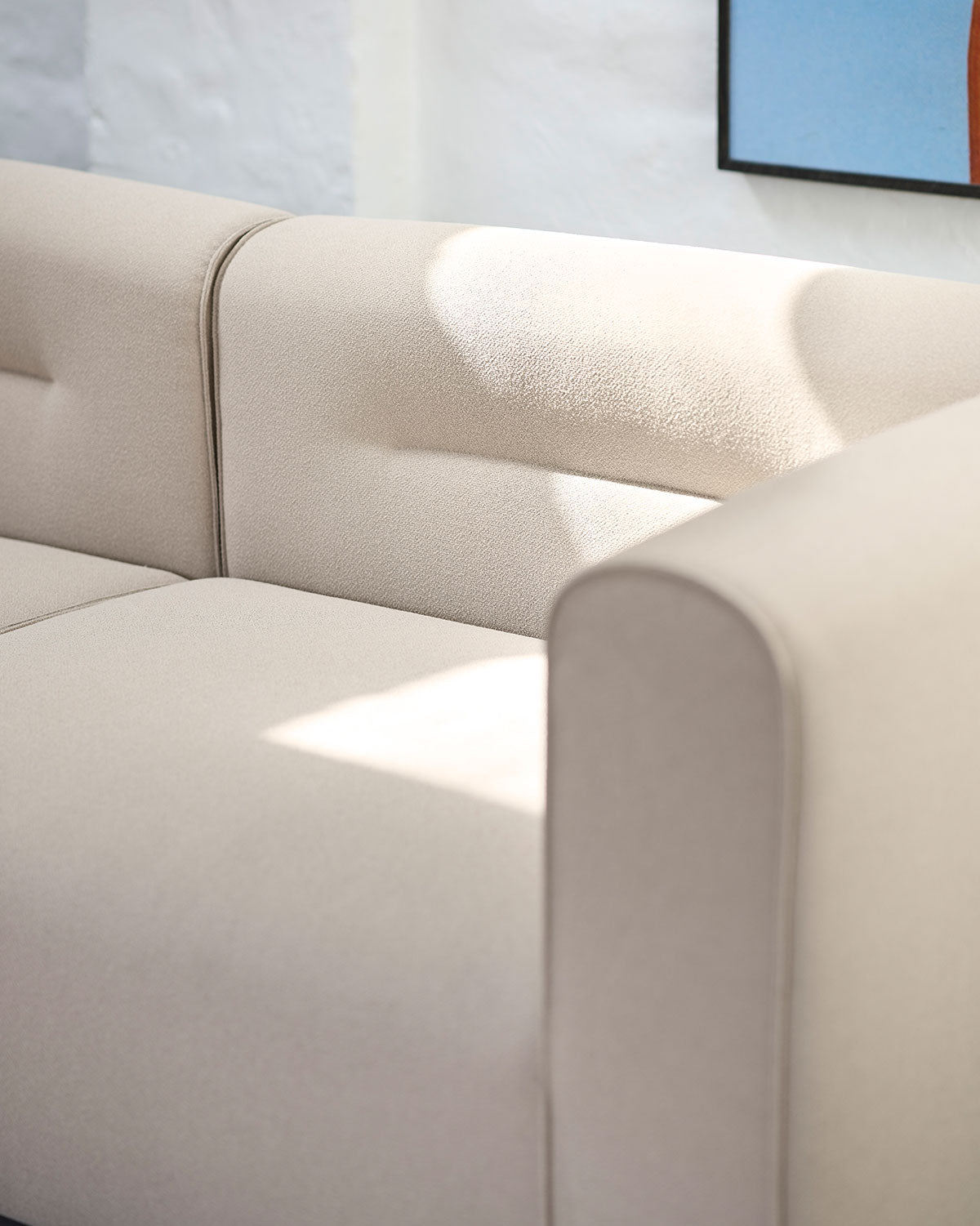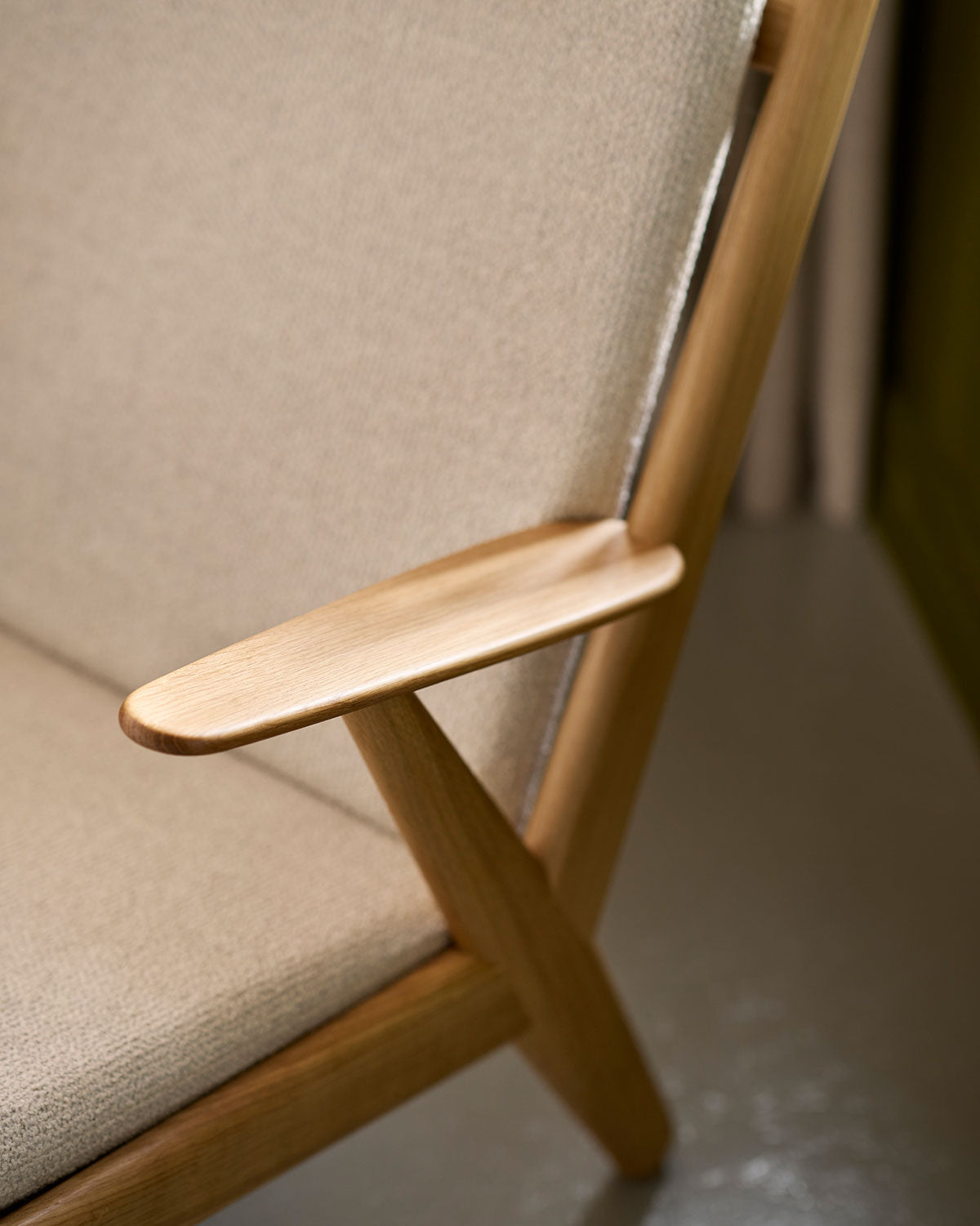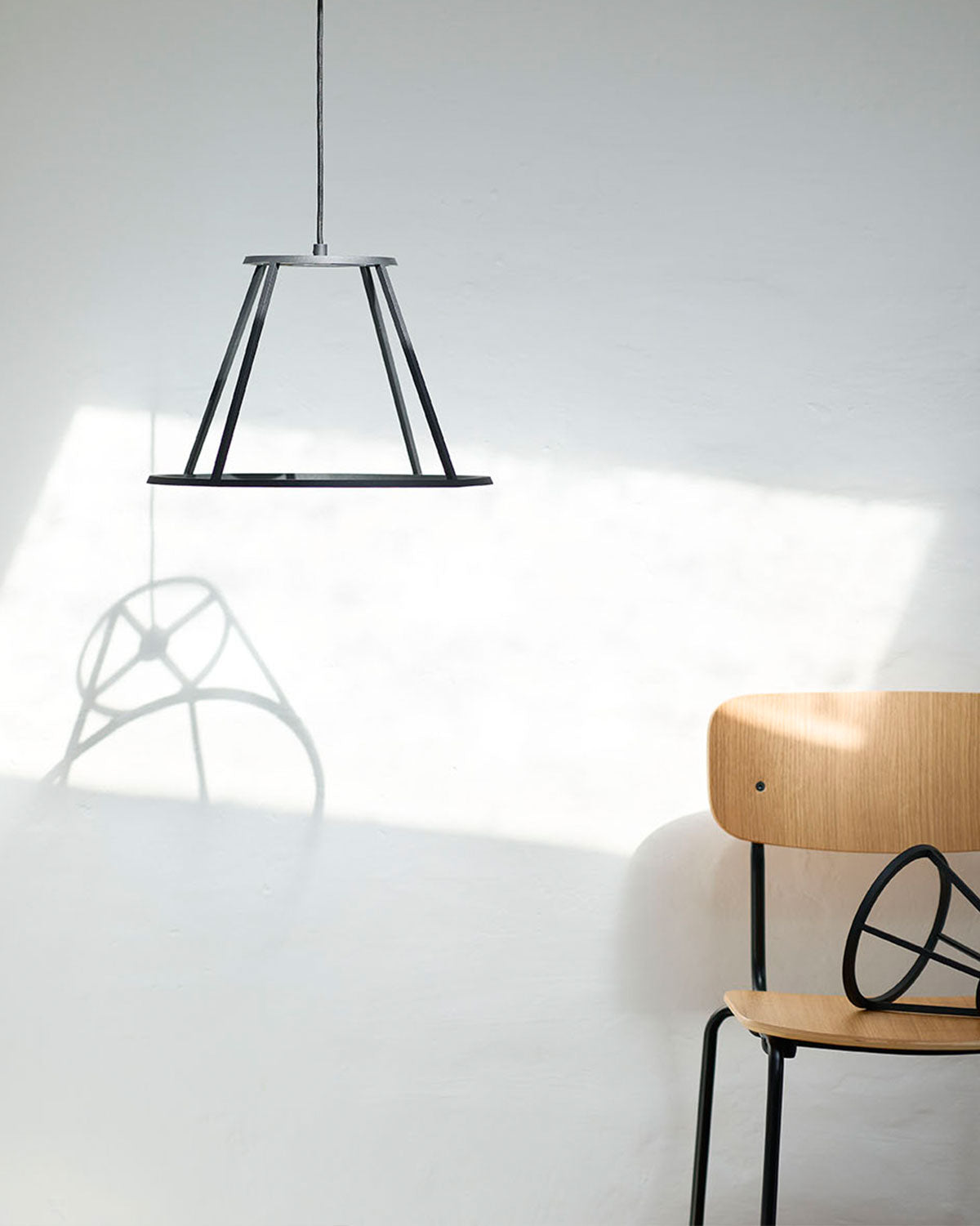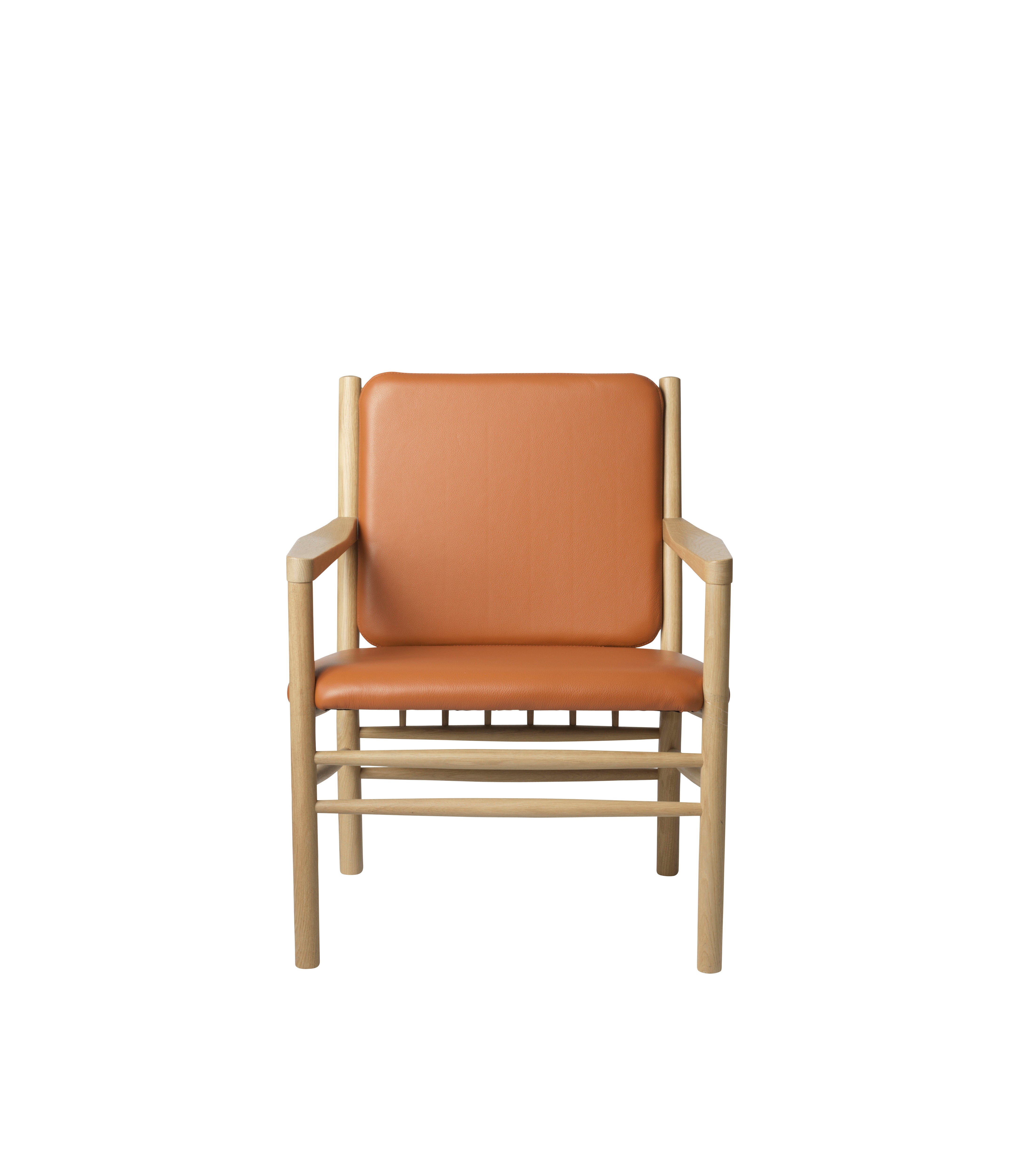
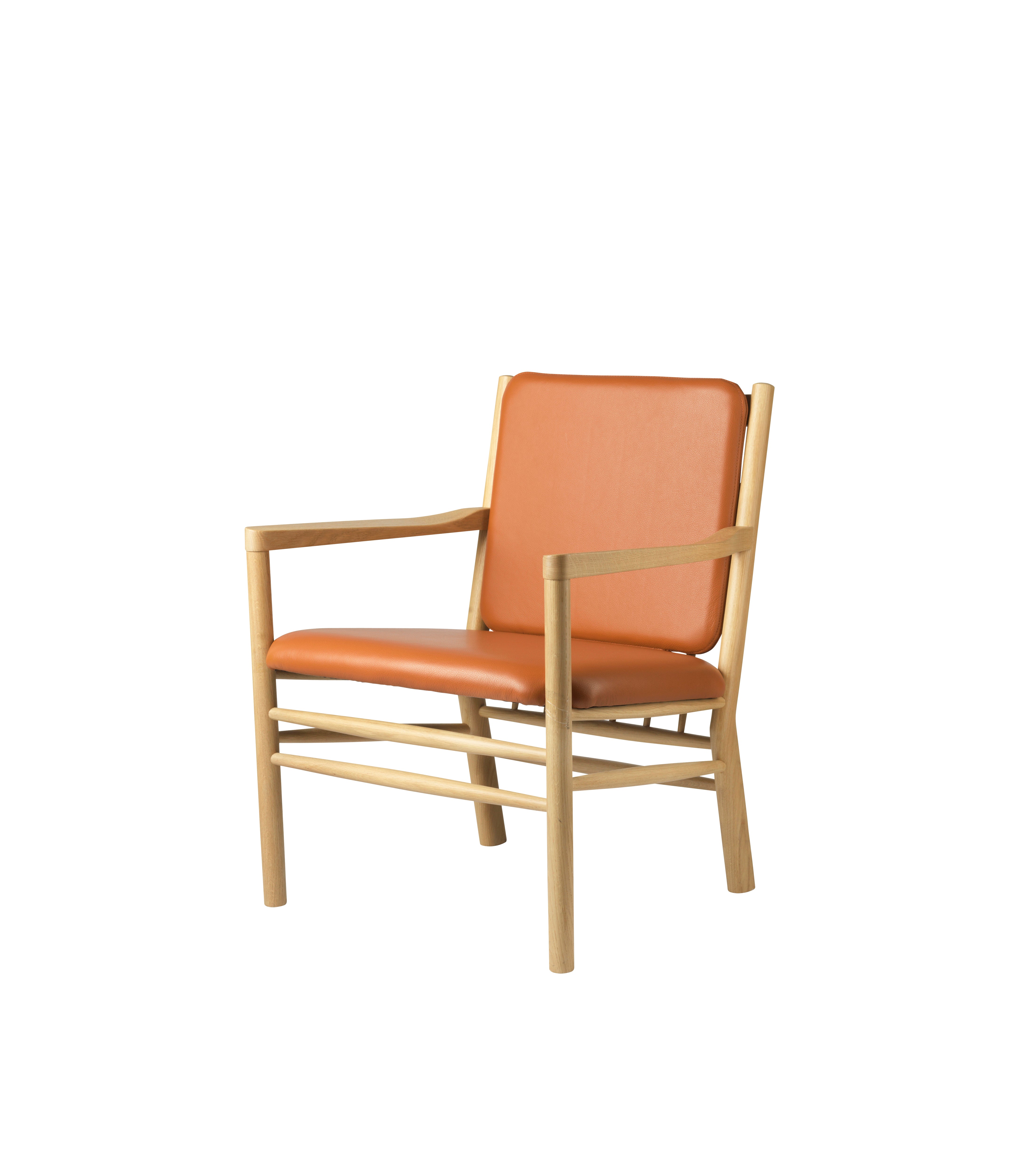
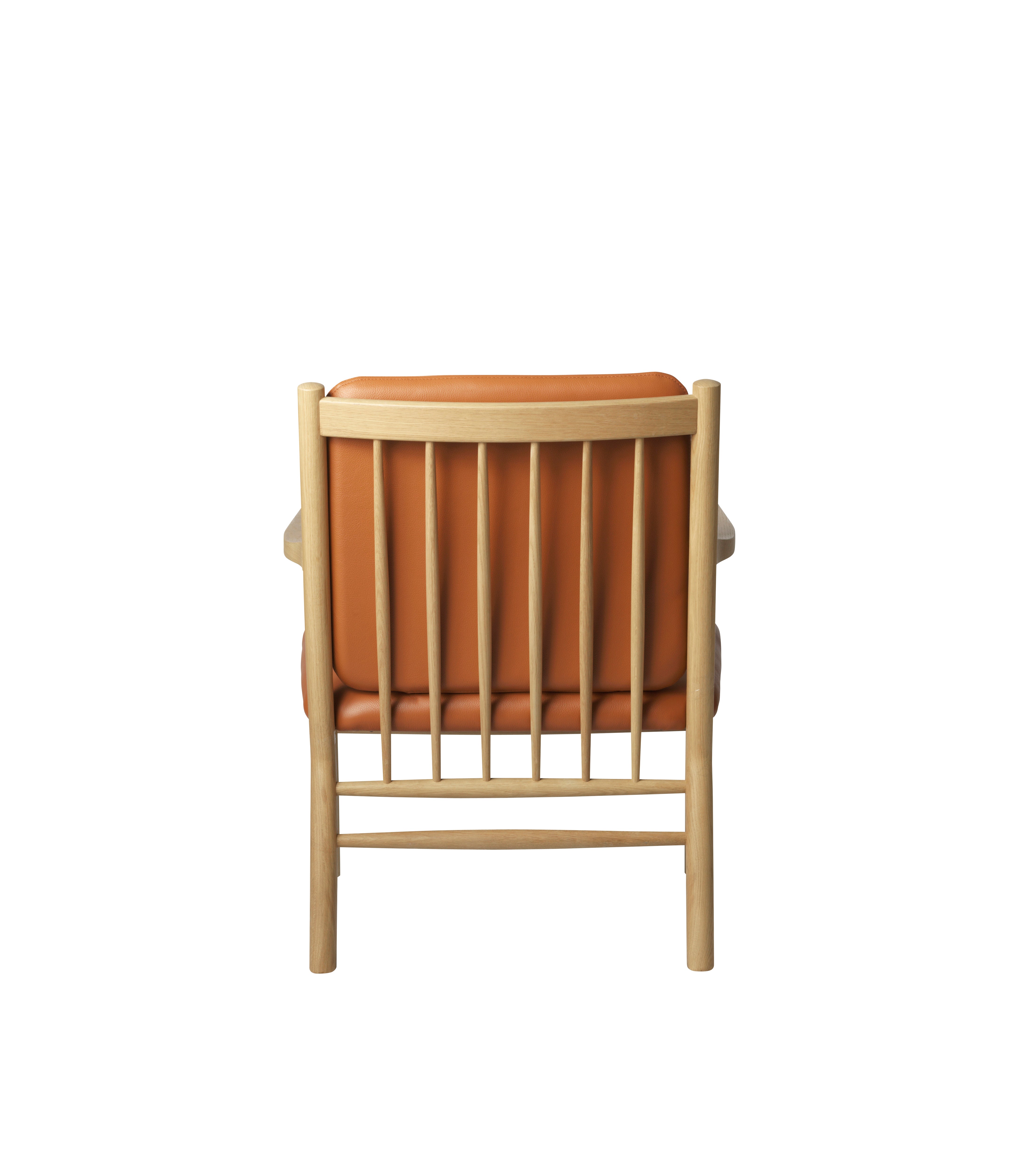
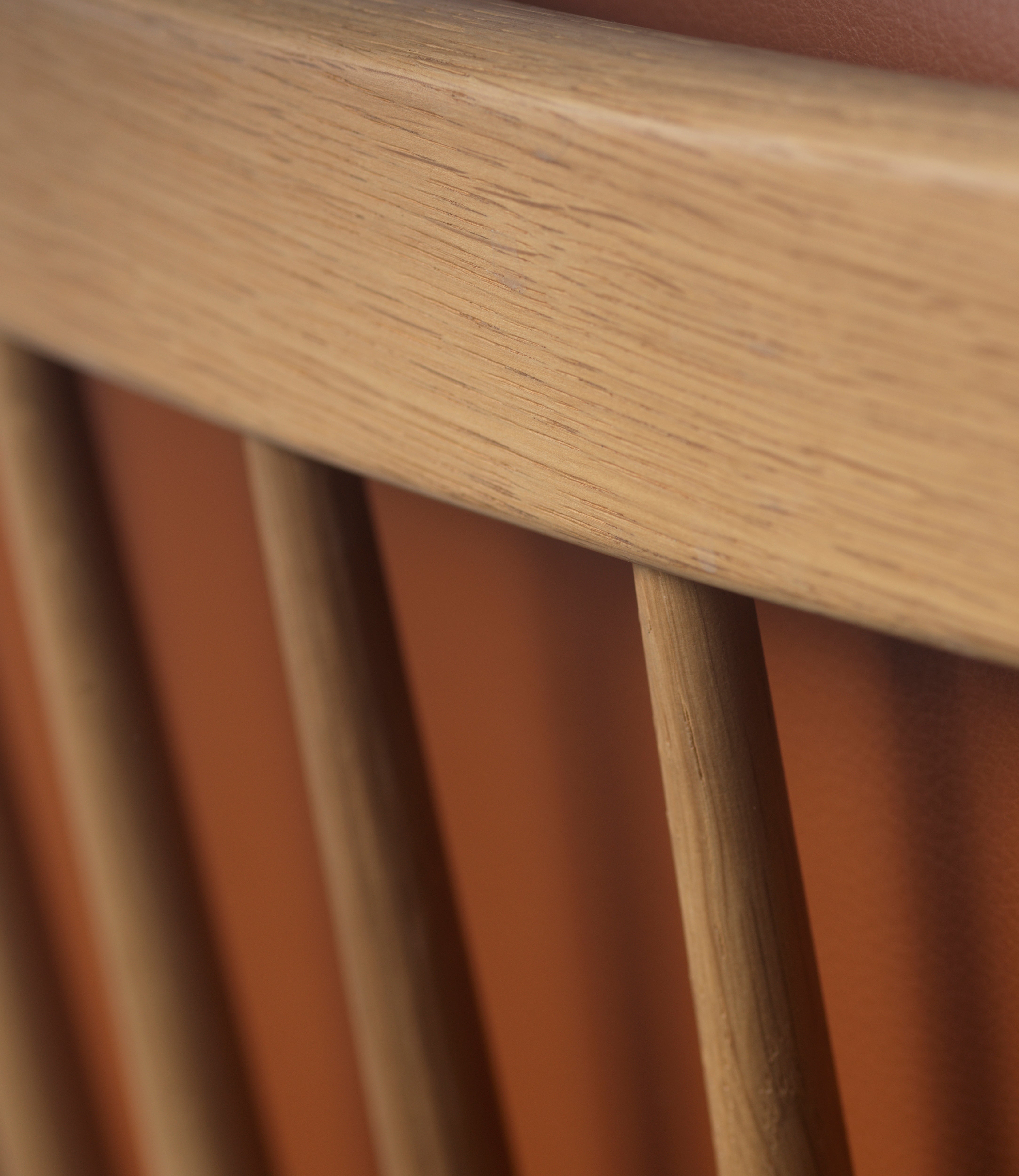
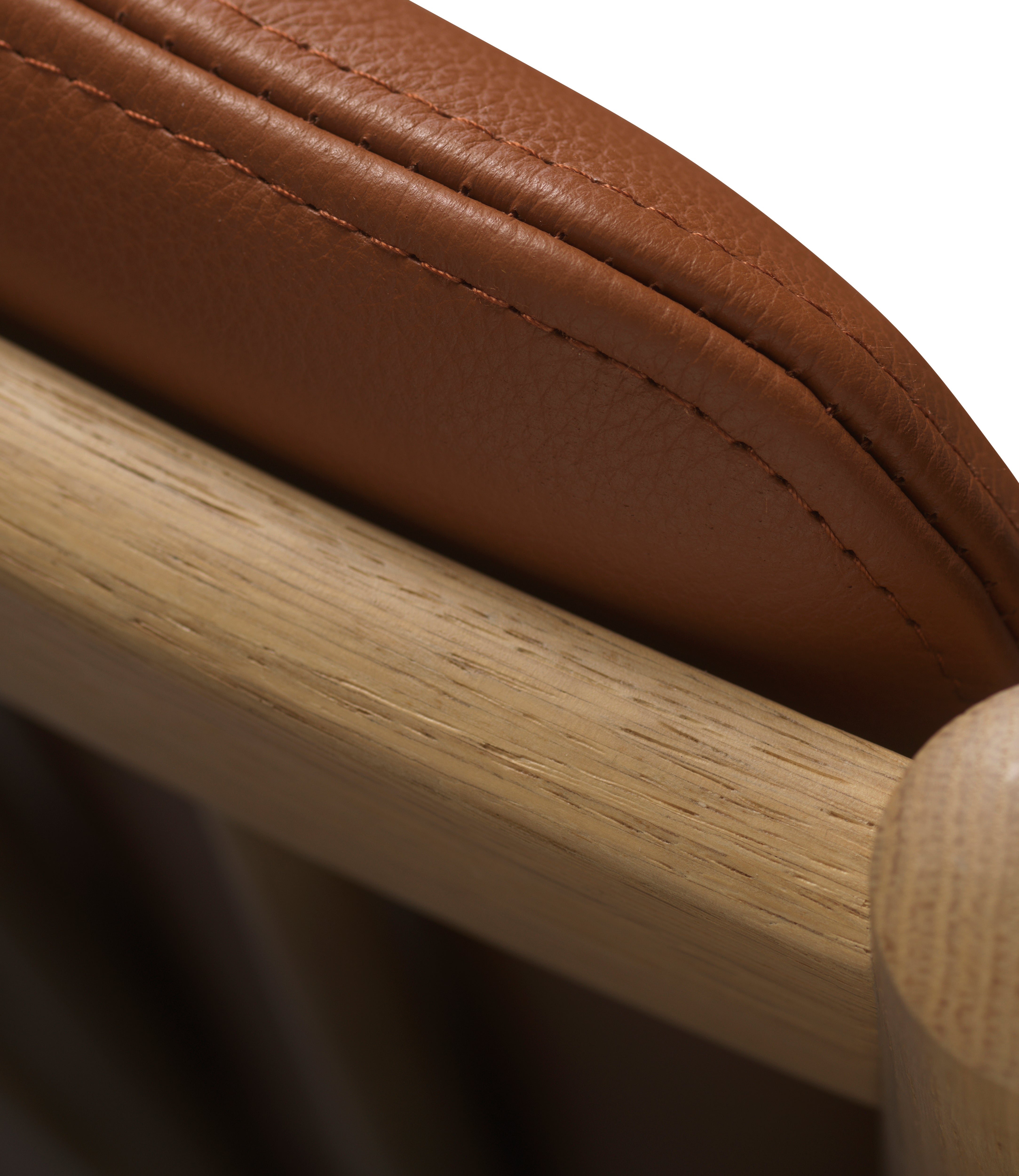
J147 - Armchair - Oak - Cognac leather
Please note! This market is not ready for sales, yet.
Info about the product
The J147 lounge chair is related to the other furniture in Erik Ole Jørgensen’s famous range of products from 1978, but has simpler armrests without spokes. It is a very comfortable armchair that invites deep relaxation for spending quality time reading, for example. It is in the ranks of the finest Danish furniture tradition – without shouting. Erik Ole Jørgensen’s spoke-back furniture is from 1978 and makes clear references to the other great designers who laid the foundations of FDB Møbler. Erik Ole Jørgensen had a background as both an upholsterer and a furniture designer, and perhaps this is why the interaction between cushions and furniture is especially successful here.
79.5
64.0
63.0
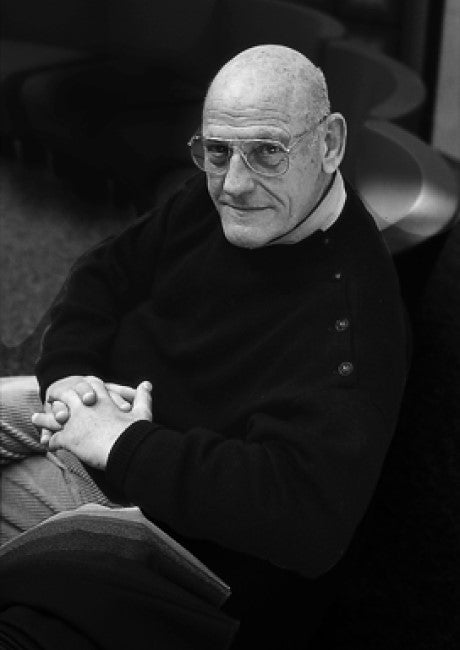

When a upholsterer also becomes a furniture architect it has a natural infection on the colors that are put together with the tree
Care and maintenance
We've put together our guide on how you can/should maintain your furniture
Wooden furniture - General
At FDB Møbler we are proud to offer furniture that is handmade and made from natural materials, giving each product its own unique character. Please note that due to these handmade processes and natural materials, slight variations in size, shape, grain structure and color may occur between different productions.
Wood can be affected by humidity, air temperature and sunlight over extended periods. Always protect the wood from hot objects such as pots and candles and potted plants that can give off moisture.
To avoid color differences caused by light, it is recommended not to have permanent decorations on the table such as placemats or vases for the first month, regardless of the type of wood furniture.
Care and maintenance of oiled wood
When cleaning, wipe the furniture with a firmly wrung cloth with warm water. Wipe up spilled liquids immediately to avoid stains.
Regular care and maintenance of the wood will ensure the longevity of your furniture. For surface maintenance, it is recommended to treat the wood with furniture oil 2-4 times a year or as needed. First clean with a hard-wrung cloth and let it dry. If the wood grain is raised, lightly sand the surface with 220 grit or higher. Then follow the instructions for the chosen oil, starting in a less visible area if necessary.
IMPORTANT:
When surface treating a worktop, it is important to remember to treat both sides, otherwise there is a risk that the solid wood will warp.
When surface treating wicker furniture, be careful not to hit the paper wicker with the oil.
It is important to wipe off any excess oil on furniture after the recommended drying time, otherwise it will leave the furniture with a greasy surface.
After using rags or sponges, it is important to place them in a plastic bag with water and close them airtight before throwing them away, as the oil can make them self-igniting. Please follow the oil manufacturer's instructions for proper disposal.
Care and maintenance of wicker
Paper yarn is treated with a thin layer of wax, which makes the paper yarn more resistant. As it is a natural material, a darker patina will appear over time.
If spilled on the paper, remove as much of the liquid as possible with a dry, colorless cloth. Then dab the stain lightly with a firmly wrung cloth. Avoid rubbing the stain and do not use chemicals, detergents or cleaning agents. Discoloration of the paper yarn can occur from spills of strong liquids such as red wine, fruit juice, strongly colored food or contact with non-colorfast clothing. If desired, use a cushion to protect the paper yarn.
Care and maintenance of upholstery - Leather
When using genuine leather, no two cuts will be the same as the skin can be marked by scars and wrinkles.
Protected leather:
With this type of leather, a surface treatment is used to ensure a uniform color and surface. Wipe up spilled liquids as soon as possible and wipe with a dry cloth if necessary. Make sure to wipe the entire surface, otherwise stains may form. To finish the leather, use soap shavings. This is done by whipping the shavings with a little demineralized water and then using the foam to apply to the leather. When the leather is dry, wipe with a firmly wrung cotton cloth.
Core leather:
With this type of leather, the surface is untreated, which emphasizes the unique beauty of the leather. As it is an untreated natural material, a unique patina will appear over time and natural drying of the leather may occur. Wipe up spilled liquids as soon as possible and wipe with a dry cloth if necessary. Make sure to wipe the entire surface, otherwise stains may form. For leather finishing, use leather cleaner and leather cream. Follow the instructions on the specific product.





